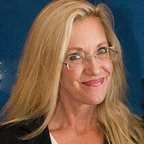Clean.
Clean Air. Clean Water. Clean Food. Clean Power. Clean Dialog.
As a child living in Morenci, Arizona, the largest open pit copper mine in North America, I would often dream of learning how to breathe underwater. It didn’t take an EPA report to know that the pollution spewing out of two smelters was toxic. After a lap or two of swimming underwater, I dreaded coming up for air. The pool water felt so much cleaner.
My father worked in the smelter. He came home each day covered in soot. Thankfully, he’s 87 now. Most of the men he worked with died long ago.
During the 1980s, when I lived in Los Angeles, the nightly news posted air quality reports. Many days were so unhealthful that children weren’t allowed outside to play.
Sometimes today’s cheaper is tomorrow’s outlandishly expensive. Junk food is more affordable than organic, when you calculate it by the pound. However, when you factor in health, the costs become alarming. Over 1/3 of Americans are obese. Health care costs are 18% of GDP ($3.4 trillion). 40% of the food grown in the U.S. is thrown away. According to the meta-data analysis of Newcastle University, organic food has more nutrition with less toxic metals than conventional food. It’s also more delicious and makes you feel fuller because your body’s need for essential fatty acids, minerals, vitamins and fiber is sated.
China has paid a high price for being the world’s factory. Over 40% of the time, air is unhealthful in Beijing and scientists expect that to remain the case for the next two decades. Water pollution is another significant problem. Reports warn that China has 20% of the population, but only 7% of the fresh water.
We all want clean air, clean water, healthy food and a healthy planet to enjoy now and forever. This is not a red or blue state issue. The most environmentally conscious suburbanite has a far greater carbon footprint than people living in towns and cities, due to their daily commute and the larger homes, which require more energy to heat and cool.
That is why we must also keep our dialog clean. When we take blame and finger-pointing out of the debate, and start with our common goals — clean air, clean water, healthy food and a beautiful planet for all to enjoy now and eons from now — then we can discuss facts, goals and ways to get there. As long as greenies pump gasoline into their cars, flip a switch for light, air conditioning and heat, we’re part of the problem. 65% of the U.S. electrical grid is powered by fossil fuels, with only 15% renewables (source: EIA.gov).
We cannot just protest. We must “be the change we wish to see” (Gandhi). A post-petroleum, clean, equitable world is something that we can co-create, just as a free world was dreamed up and created by our forefathers.
Fear presses us into short-term solutions. Habit keeps us harming ourselves and our planet, when we know there are better choices. Vision sees the long-term need and the path to get there. What we do today creates tomorrow. Our future requires courage, vision and right action. It is not a matter of us versus them. We can and must do this together.
The Earth Gratitude project features a lot of sustainability ideas in free ebooks, and a free 14-Days of Gratitude and Sustainability virtual event. Download your free copies and register at http://earthgratitude.org/.
